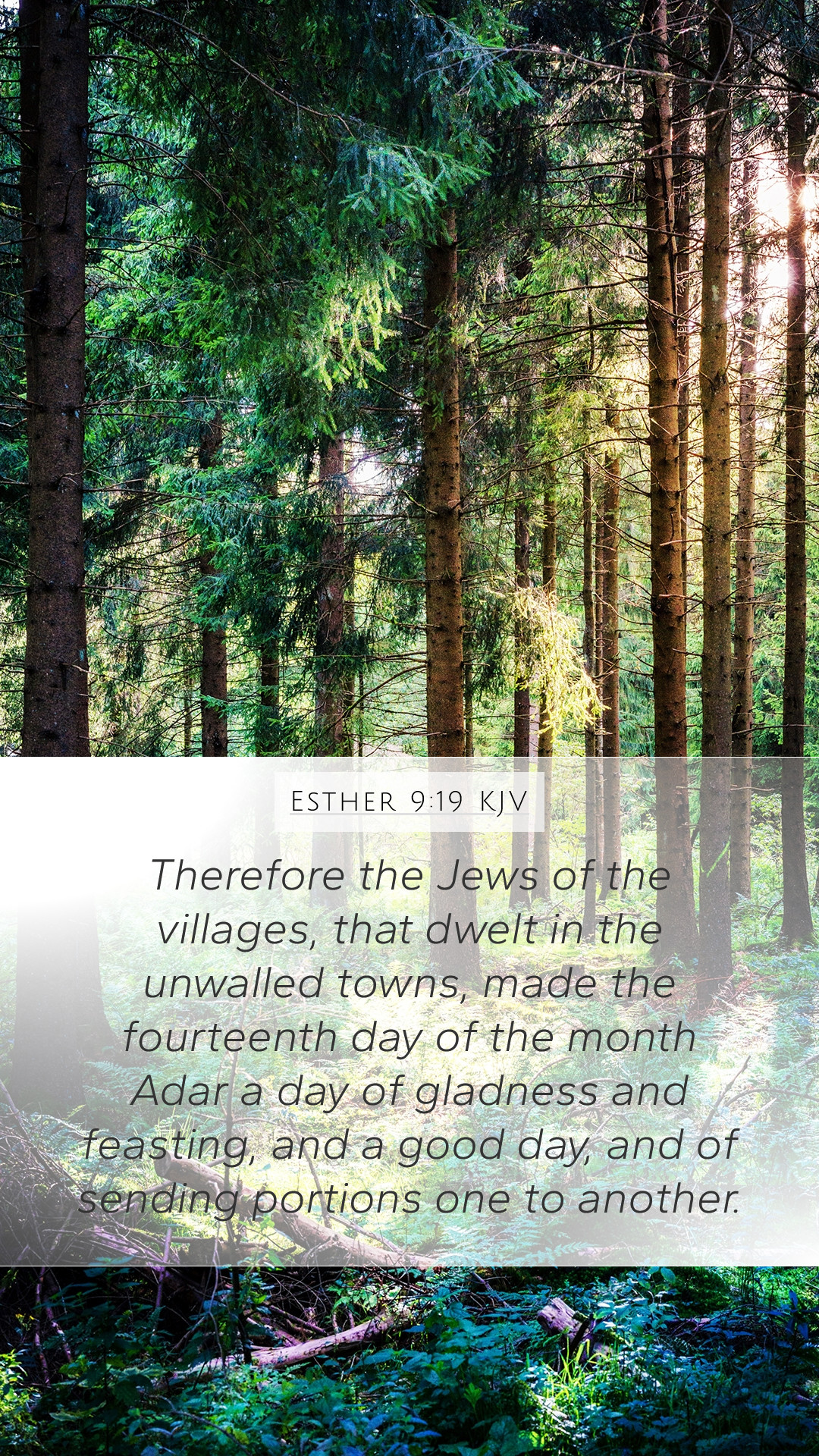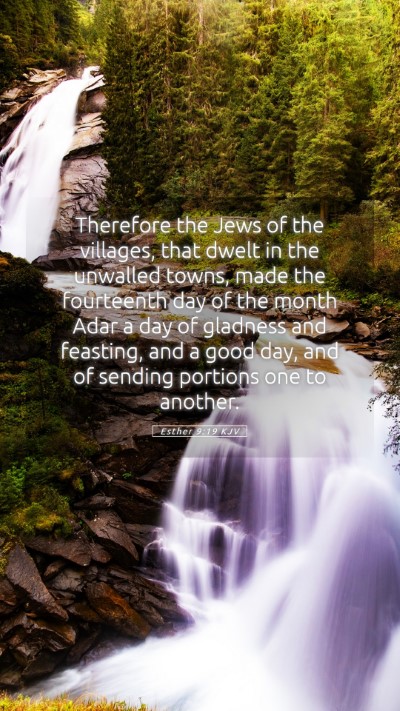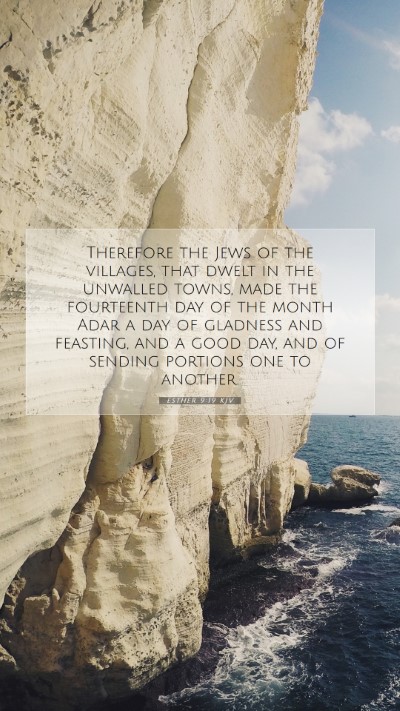Bible Verse Explanation: Esther 9:19
Esther 9:19 captures a moment of celebration and remembrance of a significant Jewish victory over their enemies. This verse is part of the larger narrative following the events of the Purim, where the Jewish people, under the decree of Queen Esther and King Xerxes, defeat their foes who sought to annihilate them. The passage states:
"Therefore the Jews of the villages, that dwelt in the unwalled towns, made the fourteenth day of the month Adar a day of gladness and feasting, and a good day, and of sending portions one to another."
Understanding Scripture: Context and Background
To grasp the meaning of this verse, it is essential to consider its historical context and significance in the Jewish tradition. The events described in Esther occur during a time of danger for the Jewish people, threatened by Haman's plot to destroy them. The successful reversal of this fate leads to a time of celebration, which is institutionalized in the observance of Purim.
Historical Significance
Matthew Henry's commentary emphasizes the importance of this event in Jewish history. The victory signifies not only survival but also divine intervention. Purim, as established by this victory, becomes a festival that celebrates the preservation of God's chosen people. It is a reminder of both God's faithfulness and the joy that comes from their deliverance.
Cultural Implications
Albert Barnes notes in his commentary that the celebration marked by this verse highlights the communal aspect of joy and generosity among the Jewish people. It emphasizes the sharing of blessings, which is enhanced through the exchanging of portions—a reflection of gratitude and unity within the community.
Bible Verse Interpretations
Adam Clarke points out the significance of the specifics mentioned—like the "fourteenth day" and the conditions of celebration among those in unwalled towns. This distinction brings attention to the varied circumstances of the Jewish Diaspora and how they maintain their cultural identity despite their dispersed status.
The Importance of Joy and Remembrance
- Celebration of Deliverance: The feast symbolizes a joyous remembrance of God's salvation. It invites reflection on the importance of celebrating divine intervention in our lives.
- Community and Sharing: The act of sending portions to one another emphasizes the call to aid and uplift fellow believers, promoting community cohesion.
- Spiritual Reflection: This verse encourages the faithful to recall God's goodness and to celebrate His providence, reinforcing the significance of gratitude in daily life.
In-Depth Bible Verse Analysis
Understanding the dynamics of Esther 9:19 allows for several layers of application in Christian living today. Core themes such as deliverance, fellowship, and worship are consistently highlighted in scripture, resonating deep within both the Old and New Testament narratives.
Application of Bible Verses to Daily Life
This verse prompts several thoughts and actions for contemporary believers:
- Recognizing God’s Deliverance: Just as the Jews commemorated their escape from danger, Christians are reminded to acknowledge their deliverance from sin and the blessings they receive through Christ.
- Encouraging Generosity: The encouragement to 'send portions one to another' finds modern application in how we care for our communities, emphasizing generosity and support for those in need.
- Creating Joyful Traditions: Establishing traditions that commemorate personal and communal victories reflects the essence of Purim, fostering a spirit of joy and celebration in faith.
Bible Study Insights
Diving deeper into Esther 9:19 can provide valuable insights for Bible study groups:
- Examine the role of Esther and Mordecai as leaders in the narrative and how their faith guided the people.
- Discuss the significance of Purim in Jewish culture and how it informs Christian understanding of gratitude and deliverance.
- Investigate other scriptural references that highlight themes of celebration and community in the context of achieving divine victory.
Cross References
Esther 9:19 resonates with several other scripture passages, reinforcing its themes:
- Exodus 12:14 - The establishment of Passover as a memorial of deliverance.
- Psalm 126:3 - The joy of restoration, signifying God's greatness in past deliverances.
- Matthew 5:16 - The call to let one's light shine, paralleling the joy shared during celebration.
Conclusion
Esther 9:19 is more than a historical account; it embodies deep spiritual truths regarding God’s provision, the importance of community, and the power of joyful remembrance. By integrating these insights into personal and communal practices, believers can find rich meaning in the ongoing narrative of God’s faithfulness.
In summary, this verse serves as an essential reminder of God’s faithfulness amidst trials, the joy that follows deliverance, and the importance of sharing blessings within our communities. Through biblical exegesis, believers are encouraged to explore and apply these enduring lessons in their daily lives.


